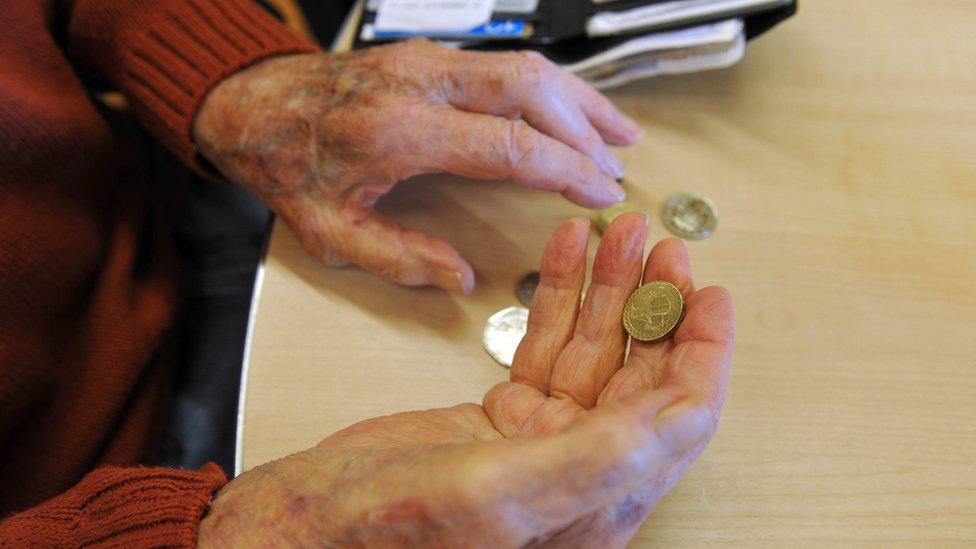One in three fraud victims 65 or over, charity says
- Published

Victim Support said many cases were not reported by victims
One in three fraud victims are aged 65 or over, analysis by the charity Victim Support suggests.
Over 65s made up 35% of 39,272 fraud referrals to the charity in England and Wales in the year to September, despite making up just 18% of the population.
And 22% of victims were aged 75 or over despite making up just 8% of the population, the analysis showed.
Victim Support's director said the targeting of older people was "disturbing and despicable".
Lucy Hastings added that many other cases were not being reported.
"We need to take away the stigma, so that victims of fraud have the confidence to report it, knowing that they are not alone and will be taken seriously," she said.
'Horrible problem'
Caroline Abrahams, charity director at Age UK, said elderly people could be scammed on the doorstep, by phone, online or by post.
"Figures like this aren't surprising to us as time and time again we're seeing stats that highlight this horrible problem and as scams become more sophisticated the risks they pose to older people are growing," she said.
"To most of us it's unbelievable that anyone would target an older person to defraud them but unfortunately it happens and we know that older people can be especially vulnerable if they are lonely and isolated or suffer with dementia."

Case study: "I was totally drawn in"
Phone fraud victim Pat Bottomley: "I thought I was sensible... I just feel stupid"
Pat Bottomley from Hull lost her £8,500 life savings after falling victim to fraudsters posing as police officers.
One fake officer called the widow, 76, and said a teenager with the same name as her son had been arrested in possession of her bank card.
"The police officer assured me he was genuine and needed my assistance," Pat said. "He even gave me the name and phone number of a real policeman, which I looked up - so I thought he was being honest."
A second fraudster then called and talked her into transferring money into a savings account to help the "police" catch international criminals withdrawing stolen money.
When her son returned home later, she realised it had been a scam.
"I was totally drawn in and I felt absolutely gutted," Mrs Bottomley said.
"The experience made me totally lose my confidence. I felt very stupid. It wasn't about the money - it was about how I was made to feel. I didn't want to answer the phone to anyone or go out anymore."

Last month, it was revealed fraudsters posing as bank staff had tricked 65-year-old Nargess Sadjady, from west London, into handing over her £12,000 savings.
In March, a man who stole more than £17,000 from a pensioner to pay his gambling and wedding debts was sent to prison.
Cormac McGuckin, 29, from County Londonderry, was given a 20-month jail sentence after a court heard he had befriended an elderly man and persuaded him to write blank cheques.
Concerns have also been raised about the vulnerability of those approaching retirement under new pension rules, which make it easier to access money in pension pots.
The Financial Conduct Authority warned that con-artists have been keen to take advantage of the change.
- Published16 September 2015

- Published7 September 2015

- Published30 March 2015
